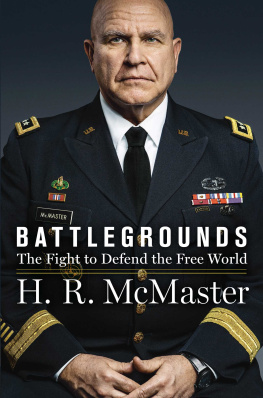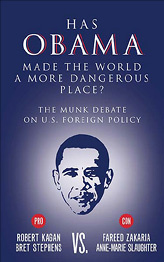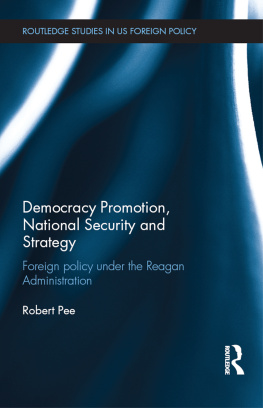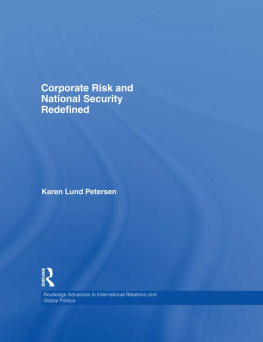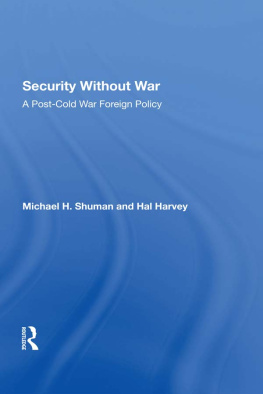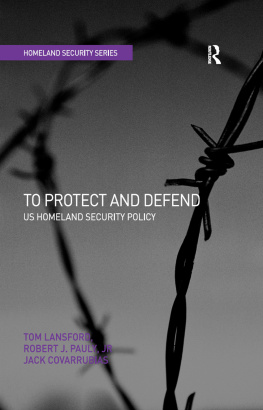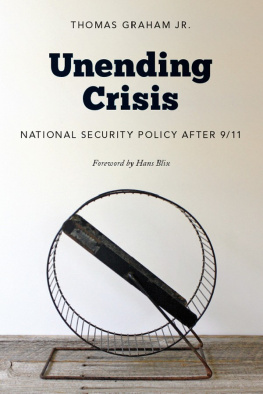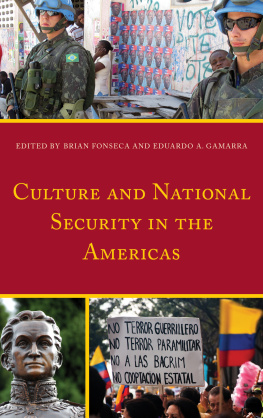Contents
Guide
For Katharine, Colleen, and Caraghthe real KCC detectives, who inspired much more than bedtime stories, including this book
Contents
THIS IS not the book that most people wanted me to write. Friends, agents, editors, and even family, asked me to write a tell-all about my experience in the White House to confirm their opinions of President Donald Trump. Those who supported the president would have liked me to depict him as an unconventional leader who, despite his brash style, made decisions and implemented policies that advanced American interests. Those who opposed the president wanted an account to confirm their judgment that he was a bigoted narcissist unfit for office. And they wanted me to write it immediately, so that the book might influence the outcome of the 2020 presidential election. Although writing such a book might be lucrative, I did not believe that it would be useful or satisfactory for most readers. The polarization of Americas polity and that of other free and open societies is destructive, and I wanted to write a book that might help transcend the vitriol of partisan political discourse and help readers understand better the most significant challenges to security, freedom, and prosperity. I hoped that improved understanding might inspire the meaningful discussion and resolute action necessary to overcome those challenges.
Chapter 3: An Obsession with Control
: Middle Kingdom
, : After a long split, a union will occur; after a long union, a split will occur
: All under heaven
Chapter 4: Turning Weakness into Strength
, ; , : If names cannot be correct, then language is not in accordance with the truth of things; and if language is not in accordance with the truth of things, affairs cannot be carried on to success
: to shoot accidently while polishing a gun
Chapter 12: Making Him Safer Without Them
: red-colored unification
: masters of money
A great deal of intelligence can be invested in ignorance when the need for illusion is deep.
SAUL BELLOW
ON FRIDAY , February 17, 2017, I was in my hometown of Philadelphia on the way to the Foreign Policy Research Institute, a think tank. The purpose of the meeting was to discuss the findings of a study I had commissioned on Russias annexation of Crimea and invasion of Ukraine in 2014. As the lieutenant general director of the clunkily named Army Capabilities Integration Center, my job was to design the future army. To fulfill that responsibility, I sought to understand how Russia was combining conventional and unconventional military capabilities along with cyber attacks and information warfarewhat we were calling Russia new-generation warfare (RNGW). The study recommended how to improve the future armys ability to deter and, if necessary, defeat any forces that employed similar capabilities against the United States or our allies. We modeled the effort on General Donn Starrys study of the 1973 Arab-Israeli War. Starrys findings helped drive a renaissance in the postVietnam War army based on changes in fighting doctrine, training, and leader development. It was clear to me that Russia, China, and other nations had studied the U.S. Army after the lopsided U.S. victory over Saddam Husseins armed forces in the 1991 Gulf War and the initially successful U.S. military campaigns during the 2001 invasion of Afghanistan and the 2003 invasion of Iraq. As a trained historian as well as a soldier, I believed that the old saying The military is always prepared to fight the last war was wrong. Militaries that encountered the greatest difficulties at the onset of war studied their recent past only superficially. Learning from history, I believed, was essential if the U.S. military were to maintain its competitive advantages over potential enemies.
I intended to begin the discussion at the institute with a description of how RNGW combined disinformation, denial, and disruptive technologies for psychological as well as physical effect. Russian president Vladimir Putin and his generals wanted to accomplish their objectives below the threshold of what might elicit a military response from the United States and countries of the North Atlantic Treaty Organization (NATO). RNGW seemed to be working, and we were likely, I thought, to see more of it. The stakes were high. Russian aggression in the last decade had taken many forms, from cyber attacks to political subversion to assassination and the use of military power such as the invasion of Georgia in 2008. Russia had changed the borders of Europe by force for the first time since the end of World War II. It seemed likely that Putin, emboldened by perceived success, would become even more aggressive in the future.
It was warm for February. I was enjoying the walk down Walnut Street when my phone rang, displaying a partially blocked Washington, DCbased number. It was Katie Walsh, the White House deputy chief of staff. She asked if I could travel to Florida that weekend to interview with President Trump for the position of assistant to the president for national security affairs. I said yes and called my wife, also named Katie, as I walked the last block. Katie was used to phone calls that suddenly changed our lives. This was one of them.
I had scheduled a premeeting with the Philadelphia Inquirer reporter Trudy Rubin. Trudy was always ahead of other analysts in her understanding of the complex problem set in the Middle East. I benefited from our conversations about the region. She predicted many of the difficulties that the United States encountered in the second Iraq War and characterized our unpreparedness for those challenges as willful blindness. We both agreed that while many often debated whether the United States should have invaded Iraq, the better question was who thought it would be easy and why. Trudy was about to return to Syria to report on the humanitarian catastrophe associated with the Syrian Civil War and the rise of the terrorist group Islamic State in Iraq and Syria, or ISIS. The most difficult part of that campaign, we agreed, would be how to get to a sustainable political outcome in Syria and Iraq that led to the enduring defeat of ISIS and an end to the humanitarian catastrophe across the Middle East. I told her in confidence about the unexpected phone call I had just received. She replied that she hoped I would be selected. Trudy was not a supporter of President Donald Trump, but he was the elected president, and there was work to be done. She and I both felt that, in recent years, the balance of power and persuasion had shifted against the United States and other free and open societies. Much of that shift, we believed, had been self-inflicted due to failures to understand fully the emerging challenges to American security, prosperity, and influence.
Service in our army gave me the opportunity to work alongside dedicated and courageous men and women in our armed forces, intelligence agencies, and diplomatic corps to implement the policies and strategies that came from Washington, DC. I would soon enter my thirty-fourth year of service as an officer, and I was considering retirement. I felt privileged to have served, especially in command positions. I had spent nearly half my career overseas and over five years in combat. I would look back fondly on the tremendous, intangible rewards of service, especially being a part of endeavors much larger than myself and being a member of teams that took on the quality of a family, in which the man or woman next to you was willing to give everything, even their own life, for you. I was reluctant to retire because I felt a sense of duty to my fellow servicemen and women, many of whom were still serving in battlegrounds overseas.
Service in combat was rewarding, but the experience was also difficult and sometimes frustrating. It was difficult because one bears witness to the horror of war and the sacrifices of young men and women who fight courageously and selflessly for our nation and for one another. It was frustrating because of the wide gap between the assumptions on which some policies and strategies were based and the reality of situations on the ground in places like Iraq and Afghanistan. Serving as national security advisor might give me an opportunity to help a new, clearly unconventional president challenge assumptions and close gaps between reality overseas and fantasy in Washington. Trudy knew that I was apolitical; in the tradition of Gen. George C. Marshall (the architect of victory in World War II), I had never even voted. If selected, I would do my duty under President Trump as I had under five other presidents.
Next page
